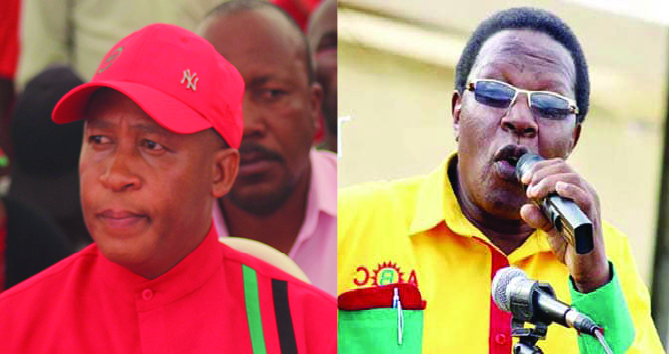Government outlines interventions to reduce the impact of the lockdown during this trying time for Basotho

Mr Mzimkhulu Sithetho
Managing Director of the Governance Institute for Sustainable Development and Editor-In-Chief of thizkingdom.com
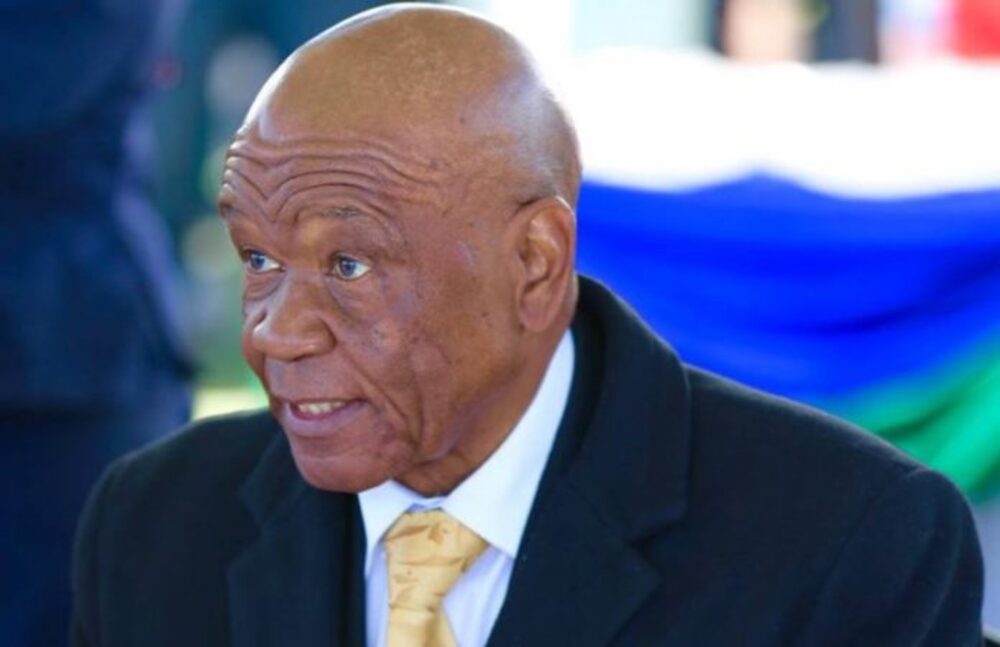
Introduction
Prime Minister, Dr Thomas Thabane addressed the nation on the state broadcaster, Lesotho Television. The address was simultaneously being broadcast live on state radio stations. The Prime Minister outlined a number of government interventions that are aimed at helping Basotho who have been severely battered by the lockdown, with intent to reduce the impact during and post the lockdown. The various categories mentioned are micro, small and medium entrepreneurs who sell their wares on streets, small holder farmers, factory workers, private sector practitioners who are into property business and Basotho who live on the margins of the larger society. Others are the vulnerable members of society such as the elderly, who are between 60 and 69 years (who are not pensionable), orphans, the disabled, disadvantaged students who are on the government sponsorship through social welfare initiatives and children on the streets. Further to the list are Basotho who are stranded in South Africa, who wish to come back home. Students who are supposed to be in class or preparing for mid-term examinations also form part of the battered community during the lockdown. The list could expand beyond this, but as the adage goes, likhomo ha li kae, batho re ba ngata, it goes without saying that not every Mosotho will be covered by the intervention, though it might be eminent.
The Prime Minister's address, which was brief, outlined the interventions in broad terms, but these were elaborated by the line ministers, who delved on issues pertaining to their respective ministries, but also touching on issues discussed at cabinet level. In his address, the Prime Minister reminded the nation that the fight against COVID-19 was still on. He said government had indicated that it had created a Disaster Relief Fund of about M698 million. He intimated about a machine that government had bought to assist in testing for the coronavirus and other measures to mitigate the spread of the virus. He said that while government was hell-bent on providing health facilities, there was dire need to take a look at the economic impact of the lockdown and to prevent loss of jobs that could result from the economic meltdown as a result of the pandemic. The Prime Minister observed that it was an undeniable fact that the global economy had taken a serious slump and that those at the coalface of economic growth - micro, small and medium enterprises including large businesses are facing serious loss of revenue as they have closed shop during the lockdown. He also took a glance at employees across the spectrum, who he said are facing layoffs and the resultant loss of basic salaries and benefits to maintain families. He also mentioned owners of rented houses, hotel owners and many other businesspeople, who he lamented, were to be direly affected by the lockdown. This was the reason for government to come fourth with a remedial measure to lessen the impact of the lockdown to those direly affected.
Health
The situation still stands that to-date, Lesotho has not recorded a single case of coronavirus. Many Basotho attribute this not to any form of wit or wisdom on the side of Lesotho or its leadership, but to the Grace of God. Those who view the situation from a spiritual perspective argue that God has been merciful to the nation that is disadvantaged in many respects. If there was to be massive infection by the virus, it would prove genocidal for the country with no testing facilities, no strong medical power and the character of health services still at its infancy stage, it would be wiped out.
A Samaritan and large businessman, Sam Matekane of Matekane Group of Companies has extended a helping hand to Basotho by erecting coronavirus testing centres across the country. One has been erected in Maseru using the Ministry of Agriculture and Food Security laboratories. More are to be erected across the country. No vaccine has been found for the Coronavirus to-date and a message to all Basotho is to apply self-discipline by staying at home. This is the essence of the lockdown, to stay at home in order to reduce chances of infection as this virus is contagious. Also, social distancing has been prescribed among the regulations for the lockdown, keeping at least a metre away from the next person in areas where coming together is necessary such as queuing for essential services. Others, which Basotho are aware of include covering one's mouth or using a disposable tissue if one is coughing or sneezing. Also, Basotho have been rallied to constantly wash their hands with soap and sanitise as much as possible. A number of eminent businesspeople, leaders and those viewed to play an influential role to Basotho have been used as ambassadors to relay the above messages.
Social development
On the social welfare front, the givernment had decided to increase the social welfare safety nets beyond what it is already providing to the disadvantaged and vulnerable members of society. The elderly who are between the ages of 60 and 69 will be assisted with the elderly grant for the next three months. However, this will be based on an analysis of the direness of the need for each person. The Minister of Social Development, Hon Motlohi Maliehe indicated that the National Information System for Social Assistance (NISSA) programme would assist with statistics of elderly who direly need assistance as it had covered all the 11 urban councils and the data of the different levels and categories of the disadvantaged groups including elderly will be obtained from that survey. Another group of vulnerable people is that of the orphans and the disabled, who will receive a relief grant for a period of three months. Hon. Malie also touched on children in the streets, whom he said were already being assisted by Samaritans such as businesspeople, but appealed that before they embarked on the assistance, they should consult with his ministry to get statistics that will guide on the direness of the needy. He however, warned that the advent of children found on the streets was anti-Sesotho norms and values as there is no child without a parent in Sesotho traditions and culture. He cautioned that no one is proud about assertions of children living in the streets as it goes against our norms as a nation. "We area not proud to mention that there are children living in the streets as a nation because we believe that there is no child without a parent," cautioned the Minister.
The Minister's call on Samaritans to go through his office is to avoid duplication so that the assistance is scattered across all sectors of the country. Hon Maliehe intimated that the COVID-19 came at a time when his ministry was already working on 41, 000 underprivileged families, data which had been provided by the NISSA project. He said the number could have increased to 44, 000 vulnerable families and their target at this trying time is 50, 000 families, especially child headed families.
Agriculture and food security
On the agricultural production front, small holder farmers will be assisted with a grant amounting to M100 million. Focus will be on the winter farming, especially for wheat and for summer cropping, focus being on maize, sorghum and beans. The modus operandi is as follows: government will focus on block farmers (those who are already working on fields that they grow as a group) and the government's own block farming schemes. The two farming methods are under the intensified crop production programme of the Ministry of Agriculture and Food Security. Government will subsidise farming by 50 percent (seeds, fertilisers, pesticides etc). According to the Agriculture & Food Security Minister, Hon. Lits'oane Lits'oane, government will utilise the Small Holder Agricultural Project (SADP), which was already assisting Basotho with farming tools, seeds, fertilisers, greenhouses and shade nets. The M100 million allocated to the project will add on what it is already doing, focusing on start-ups and will go a step further to develop new farmers. According to Minister Lits'oane, young people are encouraged to participate in these initiatives so that the country has a crop of young producers. We would encourage youth to participate in this project so that they become future producers," Lits'oane.
The initiative will also venture into crop production. Potatoes, sorghum and maize will also be considered. The initiative will be more focused in the mountainous regions of the country to curb malnutrition and its end result is intended to come to the rescue of the grassroots who often fall on the wayside of the mainstream society. Hon Lits'oane reiterated his call on Basotho to not see this as a windfall as government is averse to promoting a dependency syndrome.
Finance and trade
In the economic front, government has suspended payment of license fees by MSMEs during the duration of the lockdown. This exemption also extends to two months until that time matters will have come to a state of normalcy. The government will contribute with M500 million. Forty-five thousand (45, 000) factory workers will be assisted with a subsistence allowance of M800 per person per month for the next three months. This allowance is intended to cover their monthly rentals and basic necessities such as food. A question was posed on the procedure and modality to be followed when this is being worked on and the response was that a team of officials from the ministry of finance was set-up to work the modality.
The Finance Minister, Dr Moeketsi Majoro, who joined the team later as he had attended a meeting with the donor community and friends said there was not much that could be shared on the outcome of the meeting, except that they are still locked in discussions on how the donor community could assist Basotho. The European Union delegation to Lesotho and the World Bank are key in extending an olive branch to Basotho during this trying time.
Another intervention goes to tax compliant entrepreneurs, who, as a result of the lockdown, have and will miss the deadline for filing of income tax (pay as you earn) and value added tax (VAT) forms at the end of March and June 2020 respectively. The deadline will be extended by three months beyond the actual dates, (set to extend to end of September, 2020). This intervention covers tax for non-essential services. In addition, entrepreneurs offering non-essential services will be exempted from the simplified business taxation (SBT) during the lockdown. Those entrepreneurs who are covered by the Credit Guarantee Scheme administered by the Lesotho National Development Corporation (LNDC) and the Credit Guarantee Fund by the Ministry of Small Business Development, Cooperatives and Marketing will have the repayments of their dues suspended during this time until normalcy has been realised. This exemption also covers hotels, restaurants, transport and those in the food sector. Others who will benefit are those supported by the Private Sector Competitiveness-Economic Diversification Project.
A further intervention mentioned by the Prime Minister is that financial institutions such as banks and those providing financial services such as telecommunications companies (financial inclusion) are expected to exempt their clients from paying loans for three months while they try to stabilise. An added measure taken by government is that interest on the loans must be reduced (though it has not been specified by how much percentage of decrease). Financial inclusion services provided by telecommunications service providers - M-Pesa and ECO-CASH are also called upon to reduce charges for services they provide. Banks are also asked to reduce bank charges to their clients during this time.
Another category in the finance sector is that of insurance companies, which have been instructed to continue providing services to their clients who are bereaved, especially with claims. The insurance companies are further instructed to be lenient to their clients by extending the payment of their monthly premiums for three months.
The Finance Minister also indicated that property management parastatals such as the Lesotho National Development Corporation (LNDC) and Basotho Enterprises Development Corporation (BEDCO) have been approached with intent to discuss their contribution to the government's impact reduction initiatives. It is with the belief that MSMEs who have rented units in these organisations' buildings could not possibly meet their rental obligations as they have been out of business. The exemption covers two months of April and May 2020. For the rentals of April 2020, government will pay (bail out) LNDC and BEDCO, but the two organisations are expected to remit for May 2020. This means they will have to set aside funds to recover the rentals in the said month. This means that tenants operating in the two organisations' property will be expected to pay rent from June 2020 going forward. For other private property operators (only those who are operating commercial units), government will bail them out during the two months. These should be those who are tax compliant and are registered with the Lesotho Revenue Authority (LRA). Data on those who are compliant and deserve assistance will be obtained from the taxman. This initiative does not cover business operating residential tenancy as that will be covered under the factory workers intervention as expectation is that they will be able to pay their own rentals after receiving the M800.
Education
There is no cabinet decision taken so far on how schools will work on the fees due from students who have been at home since the lockdown and might be at home for the foreseeable future. Naturally, it inheres that students who were at home during this time were not receiving education as expected. But schools as well, need money to operate, as the COVID-19 was not instigated by them. There is an arrangement that tutorials continue on the national broadcasters - Lesotho Television and Radio Lesotho and online facilities.
However, a shortfall of this initiative, which students in the remote areas have raised is that they are left behind as they cannot access either TV or the online services. Discussions are going be held between the Ministries responsible (Education and training and Communications, Science & Technology), particularly for the latter to facilitate that the Lesotho Communications Authority (LCA) negotiates with telecommunications companies how they can provide free airtime to learners. For tertiary institutions of higher learning, they are said to have promised that they are working on online/distant learning which will facilitate teacher-student online interaction.
The team of ministers further intimated that there was possibility that the schools that have closed during the lockdown will extend their school terms beyond the normal term, which normally ends in May and returns in July/August. This will have catered for mid-year examinations, which normally take place in May-June. Therefore, students who were receiving subsistence allowances from the National Manpower Secretariat (NMDS) are not receiving them now. The Minister of Development Planning Dr Tlohelang Aumane intimated that those allowances will be availed for the two months of June and July, by extension as the affected students are supposed to pay rent and also need a living allowance. This goes for international students who are studying in the Southern African Development Community (SADC) and China, who will be given a subsistence allowance of US$300 per student per month for three months.
General
There was general expectation that the Prime Minister would mention that there was an extension of the lockdown period when it lapses on Sunday, 19 April 2020. But he did not make any mention of the extension, except to frequently mention the three-month period in most of the government interventions, which some people interpret as indirectly indicating a three-month extension. However, the Minister of Health, Hon Nkaku Kabi has assured Basotho that there is no extension as of now, as per the Prime Minister's speech, and allayed the fears of Basotho about buying in bulk in preparedness for the worst. He said extension was a function of serious analysis of many factors by cabinet and so far, that was not eminent.
The expectation and fear of an extended lockdown comes in the heels of the South African government's announcement of extension of that country's lockdown, which was supposed to end on Thursday, 16 April 2020 by two weeks, prolonging it to April end. The fear is predicated on the notion that Lesotho and South Africa are fraternal neighbours that have a long-time umbilical cord such that what the latter does has implications on the former. This notion has created a dissatisfaction among Basotho that Lesotho copycats what its neighbour does even to the extent that there was no necessity for the copycat. For example, there are Basotho who still believe that there was no need for a fully-fledged lockdown in Lesotho, given that the country has not recorded a single case of coronavirus to-date. However, right-thinking members of society are of the view that the lockdown was a necessity as a preventive measure as no vaccine has been found for the virus. The latter group argues that given the two countries' close proximity, the scale of the increase of the cases of infection in Lesotho's only neighbour, it was eminent that the country could get an infection.
Most Read
The RFP and its governing partners walk a tightrope on the Local Government Elections
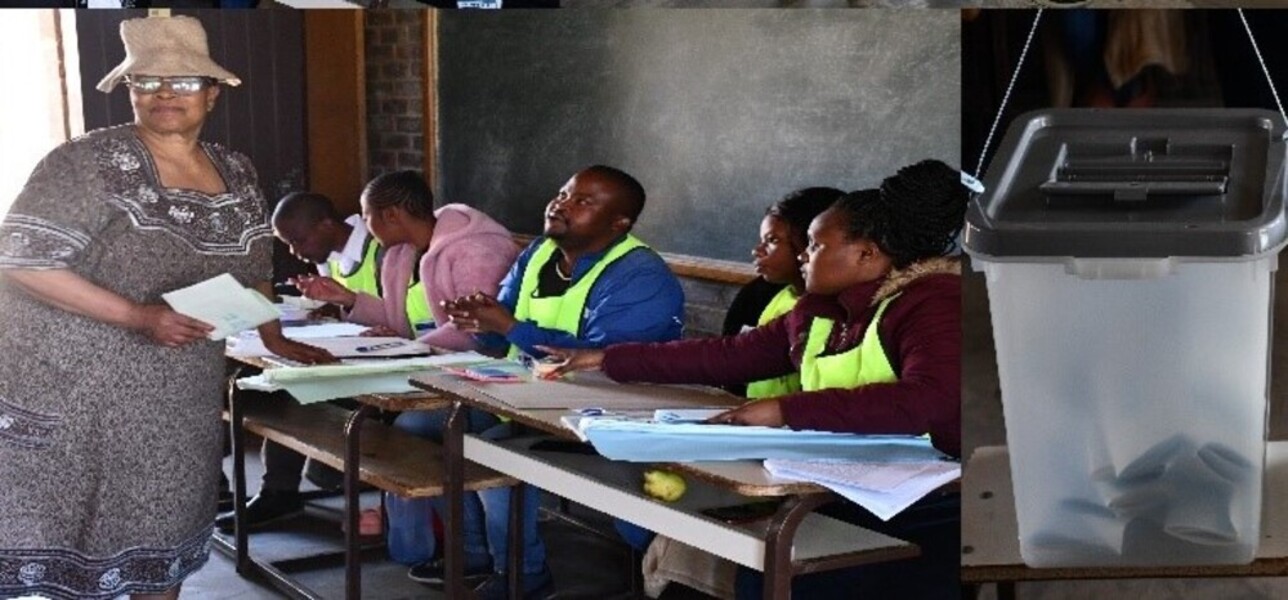
The cooling of the political temperatures came with the BAP joining the bandwagon after a season of political agitation and chess games, reflecting political anomalies in the system of political governance of Lesotho:

A Comprehensive Analysis of Lesotho's Textiles and Garment Sector
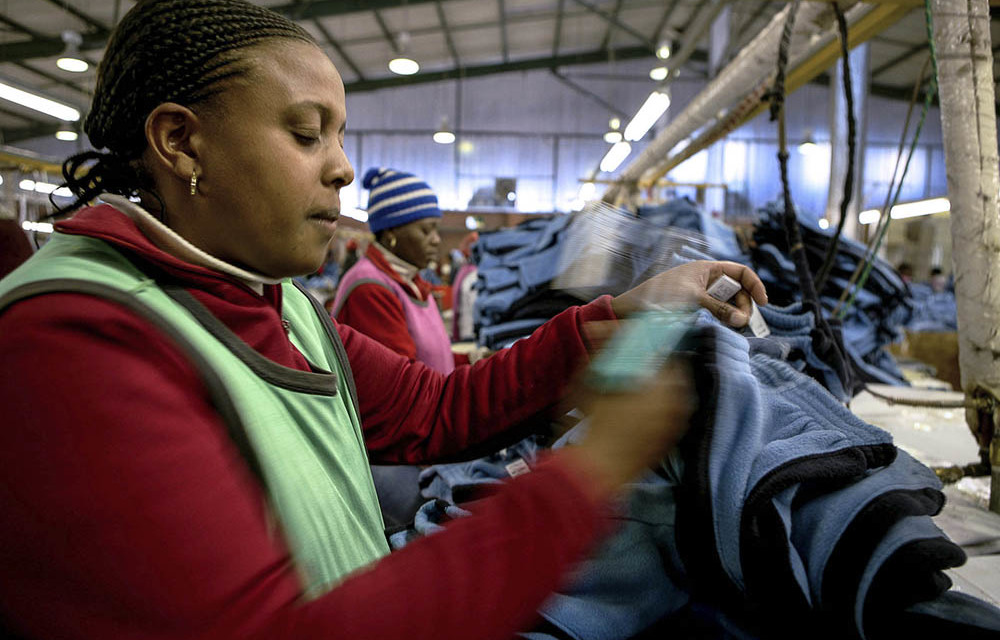
Related Stories
NEWS ANALYSIS: When a leader loses support of lieutenants, henchmen, resorts to army, spells disaster
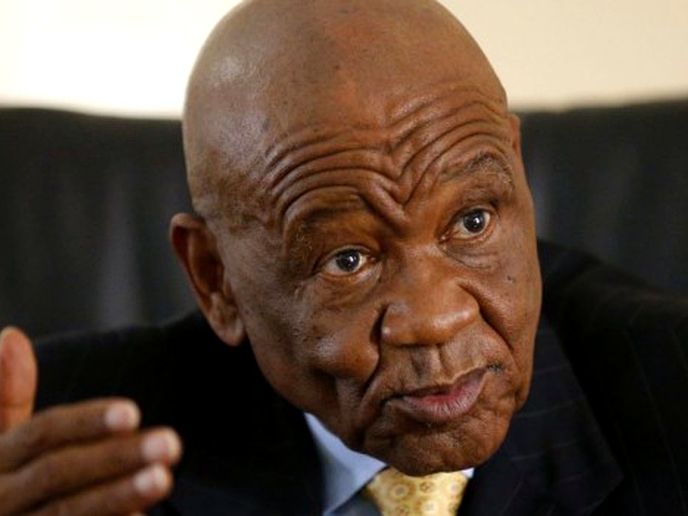
NEWS ANALYSIS: Lockdown extension, economic easing through allowing selected enterprises to operate during the second lockdown and future prospects of the COVID-19

Majoro to grapple with a myriad challenges in his stint - one of them, two centres of power within the ABC
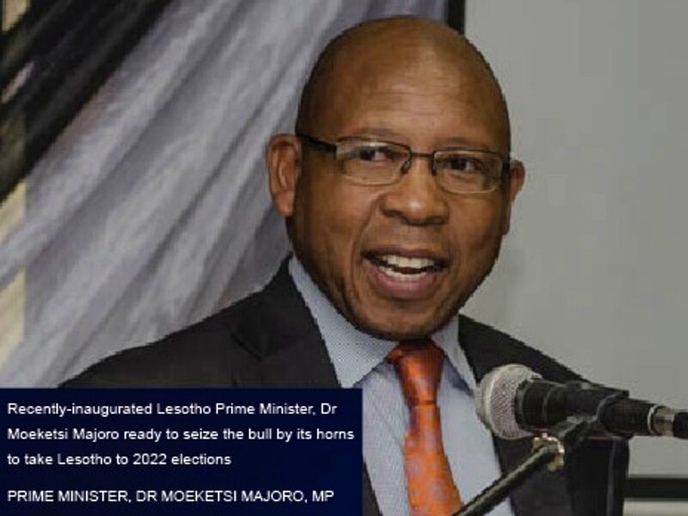
Opinion Vote Polls
Do you think the existing government is going in the right direction to benefit the people of the country?
Subscribe for your daily newsletters
Enter your email to subscribe to our newsletter.

